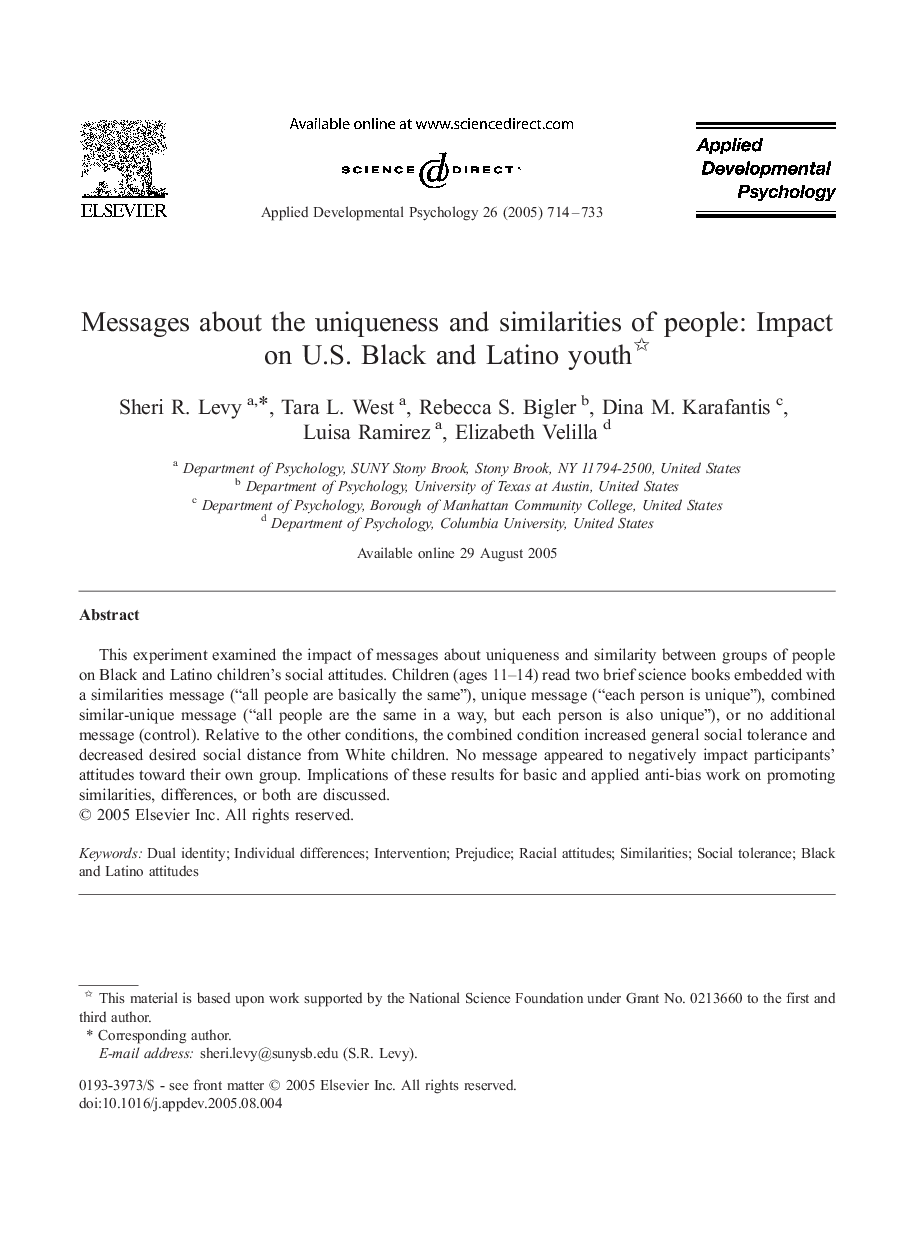| Article ID | Journal | Published Year | Pages | File Type |
|---|---|---|---|---|
| 10314330 | Journal of Applied Developmental Psychology | 2005 | 20 Pages |
Abstract
This experiment examined the impact of messages about uniqueness and similarity between groups of people on Black and Latino children's social attitudes. Children (ages 11-14) read two brief science books embedded with a similarities message (“all people are basically the same”), unique message (“each person is unique”), combined similar-unique message (“all people are the same in a way, but each person is also unique”), or no additional message (control). Relative to the other conditions, the combined condition increased general social tolerance and decreased desired social distance from White children. No message appeared to negatively impact participants' attitudes toward their own group. Implications of these results for basic and applied anti-bias work on promoting similarities, differences, or both are discussed.
Keywords
Related Topics
Social Sciences and Humanities
Psychology
Applied Psychology
Authors
Sheri R. Levy, Tara L. West, Rebecca S. Bigler, Dina M. Karafantis, Luisa Ramirez, Elizabeth Velilla,
